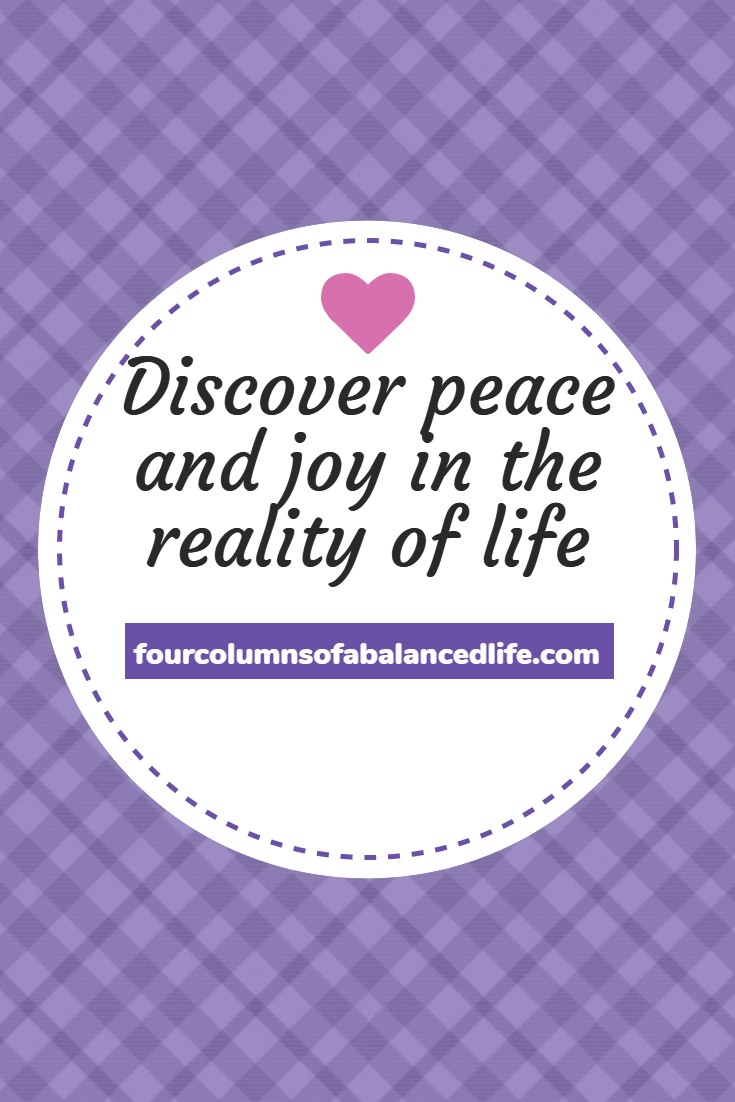Secrets on How to Have a Great Marriage

Introduction

Tara holds a Ph.D. in professional counseling from Liberty University and has theological training through her Master’s of Divinity in professional counseling from Tyndale Seminary. She is also a Registered Psychotherapist in good standing with the College of Registered Psychotherapists of Ontario and is a certified member in good standing with the OACCPP Mental Health Professionals. Tara’s respectful accepting approach balanced with gentle but firm truths provides a warm and comfortable environment for those clients she supports.
I ask Tara the nitty-gritty stuff about marriage, the benefits of counseling and how to thrive in marriage.
Tara Lalonde thanks for taking the time in your busy schedule to answer these questions. Please tell me a little about you?
I am a registered psychotherapist in Ontario, as well as a speaker and author. I have been in private practice for over a decade, helping individual adults and couples find life-transforming change. While I love working with all of my clients, I have been profoundly blessed with being able to openly work with clients who share my faith in Jesus. In those relationships, I have found Jesus to be very active in bringing clients into deeper and more impactful journeys with Him.

Please describe your journey to faith?
The Lord is so good and faithful to me. My journey began with Him when I was a teen. I accepted Jesus as my savior and was baptized at age 16. It wasn’t until I was in my mid-twenties that He became the Lord of my life, though. At that time, I realized I could no longer live with one foot in the world and the other trying to follow Jesus. My way wasn’t working. I confessed needing things to go my way and turned my control over to Him.
I wish I could say it was smooth sailing from there, but that would not be realistic. However, He has been faithful to use all of my mistakes and poor choices to move me closer to Him and deeper into surrender. He has also led me to difficult choices with the intent on teaching me to surrender more and release all control to Him.
One of those choices, that I talk about in my book, was leading me to get a double master’s degree, rather than simply focusing on my professional counseling degree. What He didn’t tell me was that I was not going to be able to accomplish the full second major because my brain simply does not learn languages well (I later found out I have a diagnosable learning disorder).
You see, to get a second major in Pastoral Studies, as He led me to do, meant taking four Biblical language courses. I choose Hebrew because I was told it is marginally easier than Greek. Well, by the end of the second course in Hebrew, I knew I was not retaining it and would not be able to complete the remaining two courses.
That felt like a failure to me and sent me into a battle of doubt with the Lord. He knew I wouldn’t be able to do it, so why did He push me to take this? In that place of pain and questioning, God showed up to me and revealed that He is still God, and I am okay. Failure did not define me and, in fact, He was pleased with me for obeying, even though He had no intention of me ever actually receiving a second full major. I learned I don’t have to fear failure because God is still in control, and the results of my obedience are up to Him, not me. I settled with a minor in pastoral and graduated the year after all of my classmates.
This is only one area that the Lord has put me in situations where I am required to depend on Him; for there are many others in my life as well. Through the years I have learned that it is better to depend on the Lord for all things than to have an easy life that does not push us beyond our comfort and abilities.

Last year I spent two weeks in Cuba and took only two books with me. One of them was yours ‘An Unexpected Freedom: Discover Peace and Joy in the Reality of Life’. Share a little about this book and what made you write it?
Wow, thank you for choosing my book to be one of your two. That was another area where the Lord pushed me out of my comfort zone to write and publish this book. Don’t get me wrong, the content has been a passion of mine for many years and is birthed out of this whole idea of surrender and dependence on God. I just never imagined that I could write a book.
An Unexpected Freedom guides readers down into the valley of dying to self and back up the other side to find meaning, hope, and deeper peace that is not dependent upon life circumstances working out the way we want them to.
Through this journey I reveal the mistaken beliefs of our culture and shed light on how Scripture reveals dying to self, letting go of control to God, and learning to see life through God’s perspective can actually change our lives to become more joy-filled, peaceful, and fulfilling.
Throughout, I share parts of my own story and the stories of others who have also taken this journey. The intent is to bring to life the possibility that this is not simply something theoretical, but rather a reality that is accessible to readers in our time and even within our changing culture.
I really do live this and seek to live it in greater and greater measure. As we learn to release more and more of our control, wants, and expectations, God shows up and transforms our negative experiences into times of drawing nearer to Him and sends us on everyday adventures we would have missed had we not had His perspective to see them.
This doesn’t mean we won’t struggle and have pain. In fact, that is always a normal part of the human experience. Becoming a Christian and surrendering it all to God doesn’t rescue us from that. It simply and profoundly changes how we interpret the pain and thus overcome it. This is the peace that passes understanding that Paul talks about. Not removal from trails and pain but peace and perspective within them.

You have been a counselor for a while, and you did your thesis on marriage. What surprised you and what did you learn from it?

I think the most profound learning, that is often quite surprising, is the idea that in order to have a fulfilling and healthy marriage, one must take 100% responsibility for their own emotional, mental, physical, and spiritual well being. That does not guarantee a healthy marriage because the health of the marriage takes two people and we only control our own side of that. But, it does put your own well being and experience of the marriage back within your own control.
This idea is painful for some people.
We want a good marriage and it is often easier to see the faults in our spouses than to recognize and do the work of taking care of our own well being. In fact, many of us believe it is our spouse’s responsibility to make us happy and whole… remember the famous romantic movie line, “you complete me”. It is a lovely sentiment but it is absolutely inaccurate and unhelpful and sets us up for a lifetime of disappointment.
God completes us as we surrender to Him and seek His perspective on ourselves and our spouses. From the place of increasing wholeness with God, we then can love our spouse sacrificially. This too is pleasing to God, who happens to be our sole purpose in life. When our spouse does this also, it feels great! When they don’t, with this perspective, we can be okay anyway. Our focus is on God’s “well done good and faithful servant”, not our spouse’s.
When they don’t love us the way we want or expect, or even how they should, two things happen. The first is that we learn to rely on God even more for our sufficiency; He is so gentle and faithful in that. And, we store up treasures in heaven that one day we will reap the rewards of in ways we cannot even imagine here. I can’t wait to see what God has in store for us in heaven!
One of my readers from India wants you to give us five practical points on how to have a great marriage?

Really it is what I have been talking about. Love the Lord with all your heart, soul, mind, and strength, and love your spouse from the place of being loved in return from God in all of those areas. When we know our God and how much He loves and accepts us, we can love others without requiring them to love us back in any particular way.
Practically, this may mean venting to God about your spouse before releasing them to Him. Then ask Him to give a new perspective on your spouse and on what you might be doing to contribute to your situation. Sometimes it really is just the other person, but often we contribute to our pain through how we talk to ourselves about our spouse, what we are not getting, how unfair it is, or how others don’t have it like this.
I recently was finding myself getting so frustrated with my husband and reacting with an intensity that is unusual for me. What he was doing warranted my frustration, but I was compelled to look inward. Even if this behavior of his never changes, I cannot be reacting like this. It is not who I want to be.
So, I took some time in prayer and reflection to see what in me this was hitting. Even though I have done a lot of internal reflection and growing over the years, I was surprised to find a core wound from my childhood that I had never realized before. I then sought my own counsel to resolve the mistaken beliefs I had developed from way back then. I now have been able to release those beliefs and have taken on a more truthful perspective of myself.
The next time my husband does something to hit that button, I may still react, but not likely to the extreme that I had because the root of the button has been discharged.
As we seek to continually take care of and heal ourselves, our marriage experience improves. When both partners do this, then we get to what God really intended for marriage. But, we cannot control that part. Only our own. And for that, we get God’s rewards, even if our spouse is not able at this time.
Another reader from Malaysia asks how do we deal with unrealistic expectations that we bring into a marriage?

Indeed, we all bring expectations into marriage and many of those are unrealistic. At the same time, it is challenging because we are not always even aware that we had these expectations until they are not met.
You may be seeing a theme here in my answers. The best way to work through these is to recognize them within yourself and explore where they have come from. Are they realistic? Are they in line with Scripture? (My spouse meeting all of my emotional needs is not, though it is a very real cultural expectation for many people.)
If you find that you believe your expectation is realistic and in line with your understanding with the Bible (or at least not against it), then openly discuss it with your spouse. This cannot be with the intent to change them, however. It is more sharing that you have this expectation and where it may have come from for you.
Ask what they think. Ask what their expectations are regarding that part of your marriage. Explore if there could be a way to work together to find a winning solution that both of you can feel good about.
If not, then return to the Lord and ask Him to help you release it or surrender it. You can also ask that He changes your spouse, but then you must again, return to, but if you don’t, change me.
A simple example in my marriage is that I unknowingly had the expectation that when I was cooking and realized I needed something, that I could ask my husband to go get it and he would if he wasn’t in the middle of something. When I tried that early on in our marriage, he said no, and may have even been annoyed that I hadn’t checked before starting.
This came as a surprise to me. I had to explore where that expectation came from. It was not hard to find, you see, this is how my parents functioned. But, in my husband’s family, his dad did not do that. In fact, his mom would often be the one to do this kind of thing for his dad. So, it was the reverse. I also realized I probably wouldn’t want to do that for him either in that situation, and that was surprising.
In the end, there was no big agreed upon shift for us. I simply had to release him from that expectation and then work on my own unwillingness, seeking God’s desire for my character in this kind of situation.
In your marriage workshop you bring out a baby elephant, please tell my audience about it concerning unmet needs?
Ah, the elephant. I love the example of an elephant. It can be used in so many ways. First, elephants are large animals and can seem very heavy and possibly overwhelming. Feelings can be like that, too.
We also have a phrase in North America about “the elephant in the room”. This refers to things, that everyone in the room is aware of, but are not being discussed openly. This too can be how we deal with our feelings.
Finally, in different parts of the world, the elephant represents wisdom, strength, cooperation, and loyalty. What a beautiful picture of what our hearts and emotions can also represent.
So, I will often use a stuffed baby elephant in my seminars and counseling sessions to represent our hearts and emotions. Particularly when our needs are not met, our emotions and troubles can feel overwhelming and big, and we may want to pretend they are not there. In reality, when we attend to them, we find strength, wisdom, new options, and resiliency.
You see, emotions have a great deal of information within them. This is not logic-based information; that comes from the mind. Emotional information is highly valuable and God gave us this information source for a reason. In fact, He says in Psalm 23:4 “Above all else, guard your heart, for everything you do flows from it”. Notice it is your heart, not your mind that directs your life.
But there is an interaction with the mind that is needed. We cannot simply allow ourselves to be driven by emotions alone. They must be engaged and understood, soothed and respected.
The information of the heart and emotions runs deeper and more powerfully than logic. So, when emotions come, take time to slow down and investigate what they may be trying to tell you. Before trying to resolve disputes with your spouse, it is important to take time to explore what you are feeling and what that may be about. Listen to your elephants!
Some questions you can ask yourself in this exploration are: What am I feeling? Where is it coming from? Am I contributing to the feeling? Am I turning up the volume in some way? What is the truth? What am I afraid of? Is this familiar (have I felt this way before)? What can I control? What do I want/desire/long for? What do I need (from me/God) to move toward my own wellbeing (even when my needs are not being met)?

When should a couple come for marriage counseling?
There are lots of times when a couple could seek counsel. For some, it is at the beginning when they realize that marriage is a lot harder than they realized (for it usually is) and they want to gain tools to communicate better.
Others may want to consider counseling when big life transitions happen for them. Having children, when children leave home, or when it is time to retire are often good times to seek counsel on how to navigate and prioritize your marriage in these new seasons.
Some people seek help when things start to get really hard and they are finding what they are trying is not working.
Unfortunately, many people wait until they are just about ready to give up before coming. I would suggest, don’t wait that long. There are real practical tools that you can gain and implement before ever having to get that far. However, if that is what it takes for you, then know that God sees you and understands that too.
Basically, I and other marriage therapists are here for you whenever you are ready.

How do you balance faith, family, food, and finance with your busy schedule?
Now that is a good question. In a world where things are going faster and we are pressed to do more, be more, and have more, it is hard to find balance. My husband and I tend to be quite counter-cultural with this, actually. We like a life of simplicity, without too much going on. I am not going all the time or involved in lots of things. When we have plans on the weekend, we make sure to also have downtimes.
In addition, (and this may sound crazy to most people) I really enjoy the silence in my home, uncluttered even with the noise of music or tv. My husband will watch tv in the evenings but other than that, we enjoy the quiet.
Though I enjoy food and we like to eat dinner out once a week, I work three nights per week so I don’t have a lot of time to cook. And, to be completely honest, cooking for just the two of us is not really something I like to do. So, I will tend to cook large portions that we will eat throughout the week. It is easier to cook a lot once than to cook multiple times during the week. It works for us.
With finances, simplicity is key once again. We intentionally choose to live below our means regarding our mortgage and other financial responsibilities. We also make it a point to pay down all credit cards each month so we do not have debt hanging over us. This allows us to be generous with our giving without feeling like we are having to “find” the money. Having never allowed ourselves to live at the max of our income, this doesn’t really feel like a sacrifice, though we recognize it is in this culture. The joy of giving abundantly is exciting to both of us.

Photo Credits: Beatriz Pérez Moya , Photos by Lanty, Pablo Heimplatz, Luis Tosta, Saad Alfonso Lorenzetto Alvin Mahmudov Will O

Great interview! I would love to read her book as well!
Really great tips!